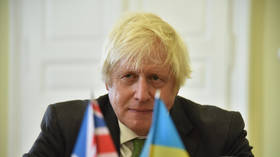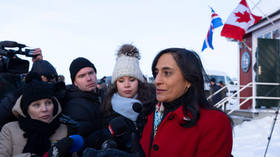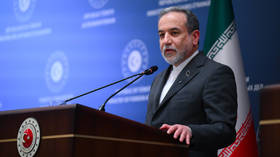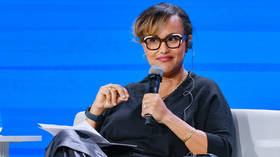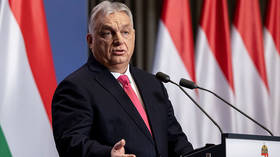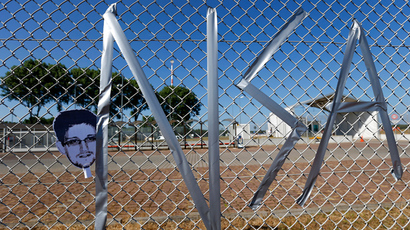Brazil's Rousseff to UN: US surveillance an 'affront'
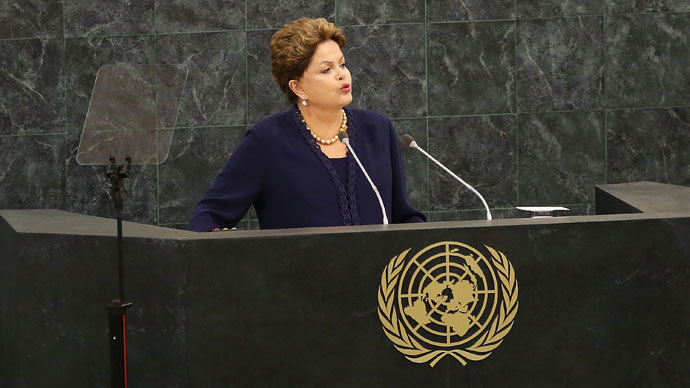
Brazilian President Dilma Rousseff lambasted US spying on her country at Tuesday’s UN summit, calling it a “breach of international law.” She further warned that the NSA surveillance, revealed since June, threatened freedom of speech and democracy.
“Meddling in such a manner in the lives and affairs of other countries is a breach of international law and as such it is an affront to the principles that should otherwise govern relations among countries, especially among friendly nations,” Rousseff said.
“Without the right to privacy, there is no real freedom of
speech or freedom of opinion,” Rousseff told the gathering of
world leaders. “And therefore, there is no actual
democracy,” she added, criticizing the fact that Brazil had
been targeted by the US.
“A country's sovereignty can never affirm itself to the
detriment of another country's sovereignty,” she added.
Rousseff went on to propose a multilateral, international
governance framework to monitor US surveillance activity. “We
must establish multilateral mechanisms for the world wide
web,” she said.
Rousseff said that the US’s arguments for spying on Brazil and
other UN member states were “untenable”, adding that
“Brazil knows how to protect itself” and that the country
has been “living in peace with our neighbors for more than 140
years.”
Brazil’s specific targeting in US surveillance practices prompted Rousseff’s government to announce that it intends to adopt both legislation and technology aimed at protecting itself and its businesses from the illegal interception of communications.
A week ago, Rousseff canceled an impending state visit to
Washington, scheduled to take place in October, because of
indignation over spying revelations. Rousseff has stated she
wants an apology from Obama and the United States.
The revelations that the US National Security Agency has been
intercepting Rouseff’s own phone calls and e-mails, in addition
to those of her aides and officials at state-controlled oil and
gas firm Petrobras, have prompted an outcry in Brazil.
Rousseff’s predecessor as Brazilian President, Lula da Silva,
said earlier this month that Obama should “personally
apologize to the world.” Lula accused the US of “thinking
that it can control global communications and ignore the
sovereignty of other countries” in an interview with India’s
English-language daily The Hindu, published Sept. 10.
Latin America voices widespread indignation at US activities
US relations with all of Latin America have recently soured. In
addition to Brazil, Mexico, Bolivia and Venezuela have all voiced
anger with the US over the NSA’s surveillance of their countries
this year. Bolivia has been especially bitter.
“I would like to announce that we are preparing a lawsuit
against Barack Obama to condemn him for crimes against
humanity,” President Morales told reporters Friday in the
Bolivian city of Santa Cruz. He branded the US president as a
“criminal” who had violated international law.
In early July, a plane carrying Morales from Moscow to the
Bolivian capital, La Paz, was grounded for 13 hours in Austria
after it was banned from European airspace because of US
suspicions it was carrying fugitive Edward Snowden, the former
NSA contractor who has been responsible for the majority of leaks
regarding NSA spying practices since June.
Venezuela wrote to UN Secretary-General Ban Ki-moon at the end of
last week, requesting that he take action in response to the
apparent denial of US visas to some members of the Venezuelan
delegation who were scheduled to attend the UN General Assembly
in New York.
President Nicolas Maduro said that the denial seemed intended to
“create logistical obstacles to impede” the visit, and
further requested that the UN “demand that the government of
the US abide by its international obligations” as host of the
68th UN General Assembly.
Tension between Venezuela and the US rose Thursday when
Venezuela’s foreign minister, Elias Jaua, told media outlets that
the US had denied a plane carrying Maduro entrance into its
airspace. The aircraft was en route to China. Washington later
granted the approval, stating that Venezuela’s request had not
been properly submitted. Jaua denounced the move as “an act of
aggression.”




